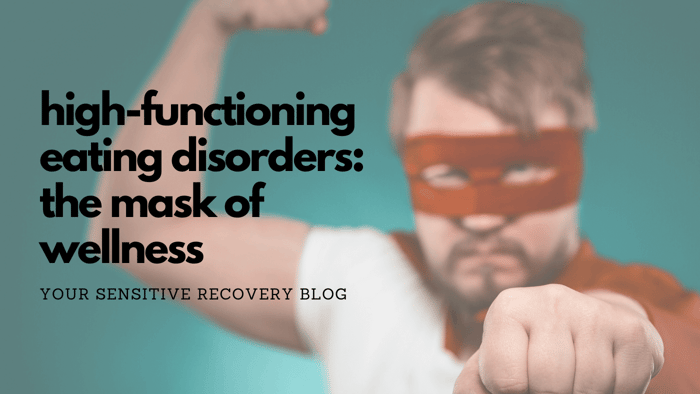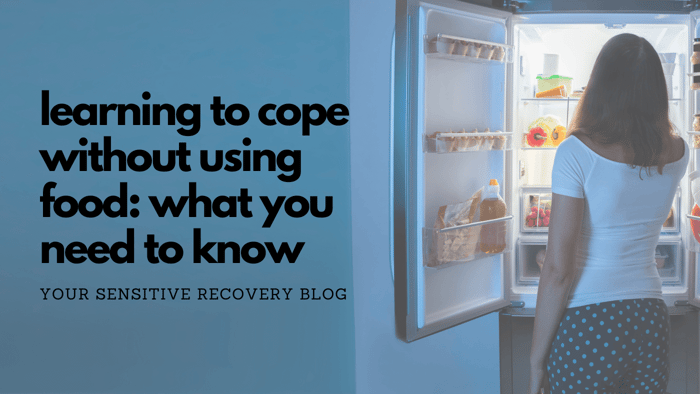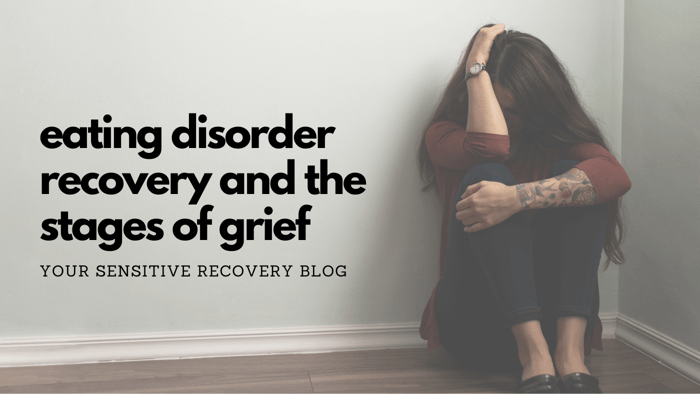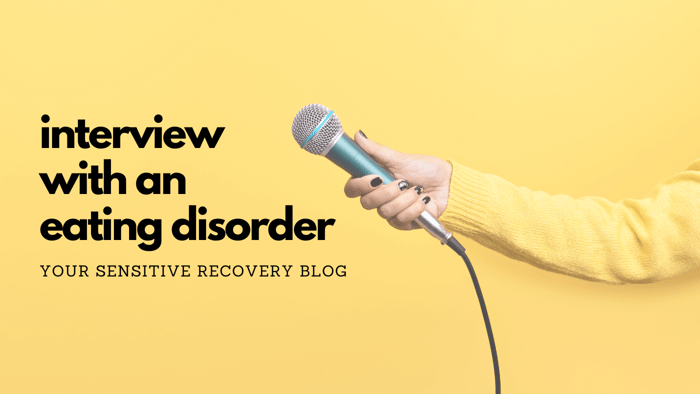On the surface, everything seems fine...great, even. They’re killing it in their careers, juggling social commitments like a pro, are dedicated to health and fitness, and have an unending air of bubbly confidence. But beneath that well-maintained exterior lies a different story—one of control, obsession, and inner turmoil. High-functioning eating disorders often hide in plain sight, concealed behind a mask of “wellness.”
As Halloween approaches, it’s a fitting reminder that the scariest struggles are often the ones we can't see. Even what one might consider a "mild" eating disorder can quietly wreak havoc on an individual's mind, body, and spirit. As the battle rages on unnoticed by others, those wearing the mask may be barely holding on.
If this sounds like you or someone you know, I see you...and you're not alone.
Under the Surface: A Whole Other Story
I was halfway through college when my eating disorder developed. It blindsided me and those close to me. I was on the Dean's List, performing in theater, co-captaining the dance team, and enjoying a full social calendar while living with my best friends.
But as the eating disorder strengthened, the cracks in my façade became evident. I was stuffing emotions like a pro and keeping wild anxiety at bay; a master of distraction.In Disney's Encanto there is a song called Pressure that takes me back to that time in my life, 20+ years ago. Luisa, who bears the gift/curse of infinite strength, intimately shares with her younger sister how the pressure to be "the strong one" and handle all of her family’s needs is slowly crushing her. (Go listen to that song - seriously, it's amazing. Thank you, Lin-Manuel Miranda.)
"Under the surface, I think about my purpose, can I somehow preserve this?
Line up the dominoes, a light wind blows
You try to stop it tumbling, but on and on, it goes."
It wasn't long before I knew, as did my loved ones, that I was not ok. But for many, many people who are wrestling with eating disorders, their struggles can fly under the radar for years, decades even, delicately concealed by a mirage of wellness, success, and smiles.
No Big Deal: The Dangerous Game of Minimization
Eating disorders can be life-threatening no matter how "mild" they might appear. Unfortunately, there is still an abundance of misinformation about these illnesses that puts folks at risk. It's far too easy to dismiss your "food issues" when they don’t match the extreme stereotypes portrayed by the media, or when your behaviors are considered a "bio-hack" or part of your quest for “health."
Dieting, which is often one of the first things people turn to when they want to "get healthier" is a major risk factor in the development of eating disorders.
Eating disorders can kill you or permanently damage your health even without weight loss - meaning, your weight is not equal to your risk.Diagnostic criteria can also be misleading and unhelpful. For example, I never lost my period when I struggled with anorexia, but back then (thankfully not anymore), the loss of menses was one of the criterion for diagnosis. I knew that and used it to convince myself that I was fine.
In my work as an eating disorder therapist, I'm used to hearing other common, minimizing statements from those who struggle, as well as their family members, and even other medical providers:
- "I only throw up once in a while."
- "They don't need treatment, I see them eat all the time."
- "I've never had to go to the hospital so it's not that bad."
- "They could stand to lose a little weight anyway."
- "My blood work is all normal. It's not a big deal."
- "Everybody watches what they eat."
It's a dangerous game, minimizing or normalizing disordered eating. Men are especially vulnerable to these dangers. Due to stigma and societal pressures, they are less likely to seek help for food and body image struggles. Eating disorders do not discriminate and it is NOT your fault if you've fallen victim to one.
Unmasking: Early Intervention Matters
Early intervention in eating disorders can be life-saving. The longer disordered behavioral patterns persist, the harder they can be to break. Remember that eating disorders usually start small and escalate over time, causing compounding physical, mental, and emotional damage. But if you've already struggled for years, hope is not lost. Recovery is still possible even in the case of long-term illness.
While someone with a high-functioning eating disorder might appear to be managing their life quite well, the internal toll can be immense, as well as the risk of long-term health complications. Addressing these issues early not only prevents the disorder from deepening its hold but also increases the chances of a full recovery.
Wondering if it's time to get help for your eating disorder? Let your curiosity be your sign. You don’t have to wait for things to get visibly bad. Intervening before an eating disorder becomes critical can save someone from years of unnecessary suffering and make the recovery journey less daunting.
You don't have to be “falling apart” to be deserving of help.We all need to be more mindful of the less obvious signs of disordered eating. Beneath the mask, you may find guilt and shame after eating, exercising to compensate for food or to give permission to eat food, eating in secret, extreme body dissatisfaction, ongoing self-criticism, isolation, or difficulty taking downtime.
Check in on your loved ones, especially the "strong ones" or the "super healthy ones" even if they seem fine. A devastating eating disorder may be lurking alongside excellent academic or career achievements, a full social life, and a happy-go-lucky attitude.
Don't let the mask of wellness steal any more of your life away. You are worthy of true peace and balance in your relationship with food and your body. And it's totally possible.
✨ Josie Munroe, LMFT is a licensed therapist and owner of JosieMunroe.com and Your Sensitive Recovery. As a recovered clinician and Highly Sensitive Person, she loves supporting others on their journeys to form new, empowered relationships with food, their bodies, and their sensitivity. Join the newsletter for a weekly boost of hope and inspiration. You deserve a recovery that works for you! ✨





